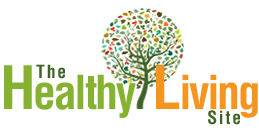As the world continues to battle the Covid-19 pandemic, a new variant has emerged, raising concerns and questions about its potential impacts. With public health and safety as top priorities, it is crucial for everyone to stay informed about this new variant. This article aims to provide you with an overview of what you need to know about the latest Covid variant.
1. The B.1.1.529 Variant:
The newly identified variant, known as B.1.1.529, was first reported in a particular region and has since garnered global attention. This variant is being closely monitored by health experts and authorities due to several important characteristics, including its potential for increased transmissibility and the effect it may have on the effectiveness of vaccines.
2. Increased Transmissibility:
Preliminary studies suggest that the B.1.1.529 variant has the potential for higher transmissibility compared to earlier variants. However, it is important to note that more research is needed to fully understand the extent of its contagiousness and rate of spread. Public health officials around the world are closely monitoring its transmission patterns.
3. Vaccine Effectiveness:
There is still limited data available regarding the impact of the B.1.1.529 variant on vaccine effectiveness. However, early reports suggest that current vaccines may still provide a level of protection against severe illness and hospitalization. Vaccine developers and regulatory agencies are rapidly assessing the situation to determine any necessary adjustments to vaccines that may be required.
4. Travel Restrictions and Protocols:
As news of the variant spread, many governments quickly implemented travel restrictions and protocols to minimize its potential global spread. These measures include enhanced testing requirements, quarantine protocols, and adjustments to international travel policies. It is essential to stay updated on travel advisories and follow the guidelines issued by health authorities in your region.
5. Individual Responsibilities:
Despite the uncertainty surrounding the B.1.1.529 variant, individuals must continue to exercise caution and adhere to public health guidelines. This includes practicing good hand hygiene, wearing masks in crowded or enclosed spaces, maintaining physical distance, and staying updated on vaccination recommendations.
6. Ongoing Research and Surveillance:
Scientists and researchers worldwide are working diligently to understand the characteristics and implications of the B.1.1.529 variant. Continuous surveillance and genomic sequencing efforts are crucial to monitor its evolution and any potential changes that may impact public health strategies.
7. Public Health Response:
Public health agencies and authorities have already begun implementing strategies to contain the spread of the B.1.1.529 variant. These measures include increased testing efforts, contact tracing, and boosting vaccination campaigns. It is important to stay informed about updates from reputable health organizations in your country or region.
The emergence of the new B.1.1.529 variant highlights the ongoing challenges posed by the Covid-19 pandemic. Staying informed, following public health guidelines, and maintaining individual responsibilities are critical in navigating this ever-evolving situation. By working together and remaining vigilant, we can continue to protect ourselves and our communities against the spread of Covid-19 and its variants. Stay informed, stay safe!




